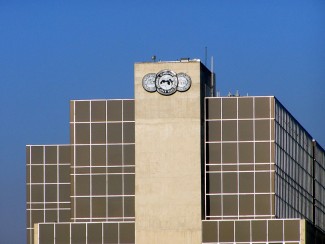Arab Bank is held liable in first civil trial victory under anti-terrorism law
Arab Bank headquarters in Amman, Jordan. Image from Wikimedia Commons.
Federal jurors in Brooklyn on Monday ruled in favor of about 300 terrorism victims and their relatives in a civil suit that accused Arab Bank of supporting terrorism by handling payments for Hamas.
The verdict was believed to be the first against a bank for violating civil provisions in the Anti-Terrorism Act, report the New York Times and the New York Law Journal. A separate trial will be held to determine damages.
The 297 plaintiffs are U.S. citizens who say they were injured in Hamas attacks from 2001 to 2004, or relatives of U.S. citizens killed or injured by Hamas, the stories say. They allege Arab Bank handled transactions for terrorists, or routed payments to a charity that sent payments to families of Hamas suicide bombers.
The bank had argued that the charity was legitimate and was not designated as a terrorist organization in the United States, according to the Times. Only a few other payments were in question, and some were the result of errors, the bank had claimed.
The bank had also cited bank secrecy laws in countries where it does business in refusing to disclose documents. As a sanction, the bank was not allowed to tell jurors why it withheld the records. The U.S. Supreme Court had refused to hear an appeal on the sanctions before the trial.
Arab Bank lawyer Shand Stephens, a partner with DLA Piper, said he was confident the verdict would be reversed on appeal, the stories reported. “Evidence this thin would never have resulted in a verdict unless there were errors in the admission of evidence, errors in the instruction and errors in imposing a sanction,” he said.
The case is Linde v. Arab Bank.




